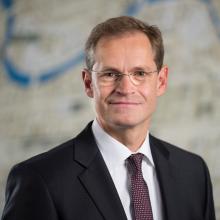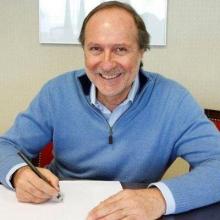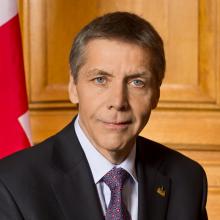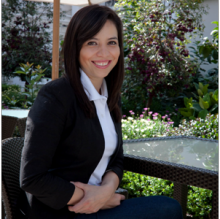Plenary Session: “Live the City”
ORGANIZED BY: METROPOLIS AND BUENOS AIRES CITY GOVERNMENT
CONTEXT
The session tackled the political and technical aspects of the themes of Inclusion, Innovation, and Sustainability, highlighting their central role in local public policies, as well as the importance of integrated urban management and genuine participation by citizens.
Inclusion
Citizen participation is a fundamental element of local management, lifting the levels of citizens’ skills and empowering local people to engage in, decide on and plan their city together with the local authorities. In this context, addressing the problems of poverty and urban inequality must be a priority to enhance fairness by designing social and physical architecture that can impact equal opportunities.
Innovation
The concept of innovation worked on in Live the City covers both technological change, via information technologies and digital solutions, and improvements in public administration processes and models – urban and open Innovation – which considers inserting cities in the knowledge economy and that of the common good, the main asset of which is human capital. This concept embraces all measures that can generate an ecosystem favorable to innovation and entrepreneurs.
Sustainability
Live the City proposes a holistic perspective on sustainable and balanced urban development which considers social, economic and environmental factors as well as cultural ones. Urban environmental policies have to explore solutions that make a decided contribution to the fight against climate change. This necessarily involves tackling the green economy concept, which includes the development of renewable energies; a clear commitment to pedestrianization and the implementation of zero or low carbon-emitting public transportation; the protection of natural spaces and environmental services; and waste management with a reduced environmental impact, among other strategies.
CONTENT
The introduction was by Daniel Chain, who emphasized the importance of the central themes of the gathering for the construction of more liveable cities and their specific impact on people’s quality of life; in other words, the importance of urban planning that tackles these themes from a holistic perspective. Subsequently, the other speakers shared details of the way in which these issues are dealt with in their own cities, with specific examples of policies which have been implemented, as well as the identification of lessons and learning experiences.
Michael Müller structured his presentation around the following question: How can we achieve progress in our cities in order to improve people’s quality of life with the help of technology and good political management? In order to demonstrate that change is possible, he explained the implementation of the system of interactive maps in order to verify wheelchair access in the city, and an application for electronic devices that allows people to check not just the departure times for bus and train services, but also how full these transport services are.
Pierre Desrochers emphasized the need for the creation of spaces where citizens can express themselves and make decisions in order to strengthen the commitment and the integration of all population sectors and generations. For this purpose, he gave the example of various formats which stimulate participation, such as municipal or neighbourhood councils.
For his part, Daniel Chain gave examples of the policies which have led Buenos Aires to be considered a healthy, cultural, habitable, and integrating city. From amongst these actions he highlighted the Green City initiative, the Urban Development and Recovery Plan, and the improvement of various central thoroughfares as part of the Microcentro Plan.
With regard to participatory planning, Daniela Chacón set out its meaning, its implementation, and its advantages, whilst the representative from the city of Mexico, Felipe de Jesús Gutiérrez, demonstrated the efforts made in order to achieve integrated urban renewal based on habitability and participation, with projects such as Interurban Trains, the Health City, the Sports City, and the new CDMX airport, amongst others.
The speakers agreed that, in order for all inhabitants to be able to enjoy a city, it had to be re-organized, and that investment, development, and equality needed to be encouraged. Beyond this, the main point of agreement was in relation to the importance of listening to citizens, i.e. making them participate in collective decisions. Cities need to be humanized, and for this is it essential to create spaces for social integration backed by modern, high-quality infrastructure, that improves the competitiveness and productivity of the economy. In conclusion, the presentations insisted on the idea expressed by Minister Chain that ‘Cities are for living in, not surviving in’.
AGENDA
9 am – 9.15 am: Introduction by Daniel Chain about the importance of the meeting’s central themes (inclusion, sustainability, innovation) for the construction of more livable cities and their specific impact on the quality of people’s lives. Importance of a form of city planning that approaches these themes from a holistic focus, not as independent work areas.
9.15 am – 10 am: Speakers’ presentations (approx. 7 mins per speaker, with or without PPT at the speaker’s choice) on the way the central themes are approached in their cities, with specific examples of policies/actions carried forward and the identification of lessons, points learned and/or failed experiences which they learnt from in order to improve.
10 am – 10.15 am: Comments or questions from the moderator (D. Chain) to the speakers regarding specific aspects of the presentations.
10.15 am – 10.30 am: Questions from the public to the panelists and close.











